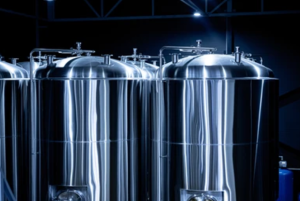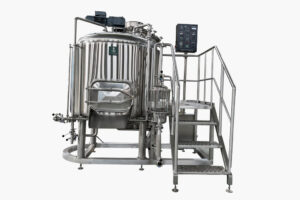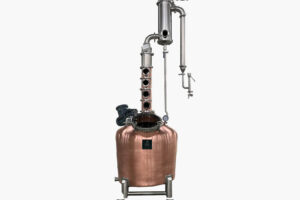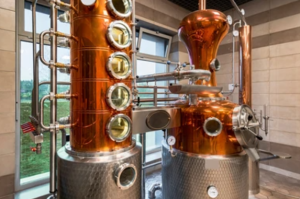COPYRIGHT © 2022 NingBo COFF Machinery Co., ltd. ALL RIGHTS RESERVED
Menu
Categories
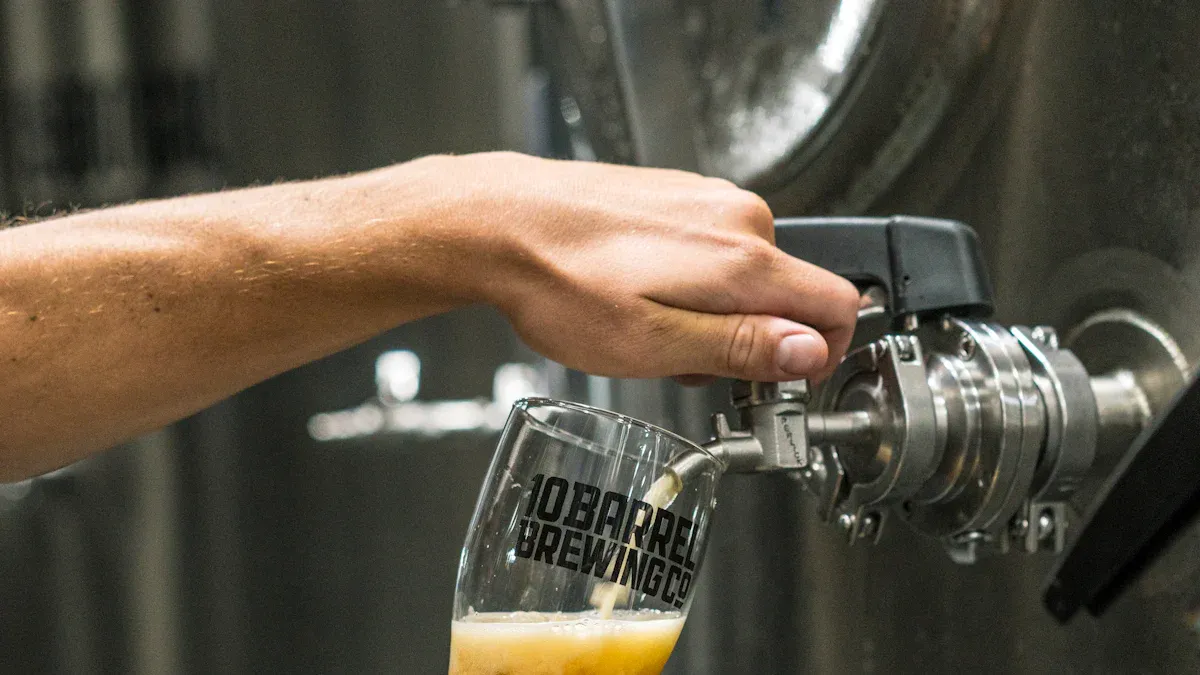
If you’re passionate about craft beer, you know how important the right tools are for brewing. Craft distillery equipment plays a key role in turning raw ingredients into flavorful beer. Whether you’re setting up a small microbrewery or upgrading your home brewing equipment, choosing the right gear makes all the difference. From mash tuns to fermenters, every piece of essential equipment helps you brew efficiently and consistently. For commercial brewing equipment, durability and precision are just as critical. With so many types of brewing equipment available, finding the perfect fit for your needs can feel overwhelming. That’s where COFF comes in—offering high-quality solutions tailored to your brewing goals.
Key Takeaways
- Pick the right brewing tools based on how much you plan to make. Think about batch size and future growth for better results.
- Buy good-quality brewing tools, like mash tuns and fermenters, to improve taste and keep your beer consistent.
- Use modern cleaning tools, like CIP systems, to keep equipment clean and stop contamination.
- Work with a trusted supplier, like COFF, for strong and creative tools that help your brewing and make work easier.
- Always check temperature and steps to get the best brewing conditions and make sure every batch is great.
Mashing and Lautering Systems in Microbrewery Equipment

When it comes to brewing, the mashing and lautering systems are where the magic begins. These systems help you extract fermentable sugars from grains, setting the stage for a successful brew. Let’s dive into the key components.
Mash Tuns
Mash tuns are the heart of the brewing process. They’re where you mix crushed grains with hot water to create a mash. This step activates enzymes that convert starches into sugars, which are essential for fermentation. Modern mash tuns come equipped with advanced features to make your brewing experience smoother.
- Sensor technology ensures precise control over temperature and time, so you can optimize the mash process.
- pH sensors monitor acidity levels, helping you achieve maximum enzymatic activity.
- Insulated designs maintain consistent temperatures, reducing heat loss and improving efficiency.
If you’re exploring different types of mash tuns, consider your brewing goals. Some are designed for small batches, while others handle larger volumes. COFF offers a range of high-quality mash tuns tailored to meet your needs, whether you’re a homebrewer or running a commercial operation.
Lauter Tuns
After mashing, the next step is lautering. Lauter tuns separate the liquid wort from the spent grains. This process is crucial for extracting sugars efficiently. High-performance lautering systems, like those from COFF, use advanced designs to streamline this step.
- Precision-engineered plates ensure smooth wort flow while minimizing clogging.
- Automated systems reduce manual intervention, saving you time and effort.
With the right lautering equipment, you can achieve a clean, high-quality wort that’s ready for boiling.
Combination Systems
If you’re tight on space or looking for versatility, combination systems might be the perfect solution. These systems integrate mashing and lautering into a single unit, offering convenience without compromising quality.
Combination systems are ideal for small breweries or startups. They simplify the brewing process and reduce the need for multiple pieces of equipment. COFF’s combination systems are designed with efficiency and durability in mind, making them a smart investment for any brewer.
Pro Tip: Always choose brewing equipment that aligns with your production capacity and goals. COFF’s expert team can help you find the perfect fit for your brewery.
Boiling and Whirlpool Systems in Craft Beer Brewing Equipment
The boiling and whirlpool stages are where your craft beer starts to take shape. These systems play a vital role in flavor development, sterilization, and clarity. Let’s explore the essential components that make this process efficient and effective.
Brew Kettles
Brew kettles are the workhorses of the brewing process. They’re where you boil the wort, sterilize it, and extract flavors from hops. The boiling stage also helps remove unwanted compounds, ensuring your beer tastes just right. Modern brew kettles come with advanced features to enhance performance and quality.
- Automation: Many kettles now include automated systems that let you monitor parameters like pH, dissolved oxygen, and turbidity. This ensures consistent results with minimal effort.
- Condition Monitoring: Sensors track key metrics like temperature and conductivity, helping you maintain optimal brewing conditions.
- Efficiency: Real-time monitoring prevents oxidation and reduces waste, saving you time and resources.
COFF’s brew kettles are designed with precision and durability in mind. Whether you’re a small-scale brewer or running a commercial operation, their kettles deliver consistent results every time.
Whirlpool Tanks
Whirlpool tanks are essential for separating solids like hops and proteins from the wort after boiling. This step ensures your beer is clear and free of unwanted particles. Advanced whirlpool systems, like those offered by COFF, take efficiency to the next level.
- Temperature Control: Sensors maintain the ideal range of 80°C to 90°C, ensuring proper protein coagulation and hop utilization.
- Design Optimization: Features like pulsatile filling and discharge head ratios improve solid separation and clarity.
- Process Monitoring: The duration of the whirlpool process is carefully controlled to achieve the desired results.
Studies using computational fluid dynamics (CFD) have validated the effectiveness of these systems. COFF’s whirlpool tanks incorporate these innovations, making them a reliable choice for any brewer.
Pro Tip: Investing in high-quality boiling and whirlpool systems not only improves your brewing efficiency but also enhances the flavor and clarity of your craft beer.
Fermenters and Bright Tanks for Brewing Equipment
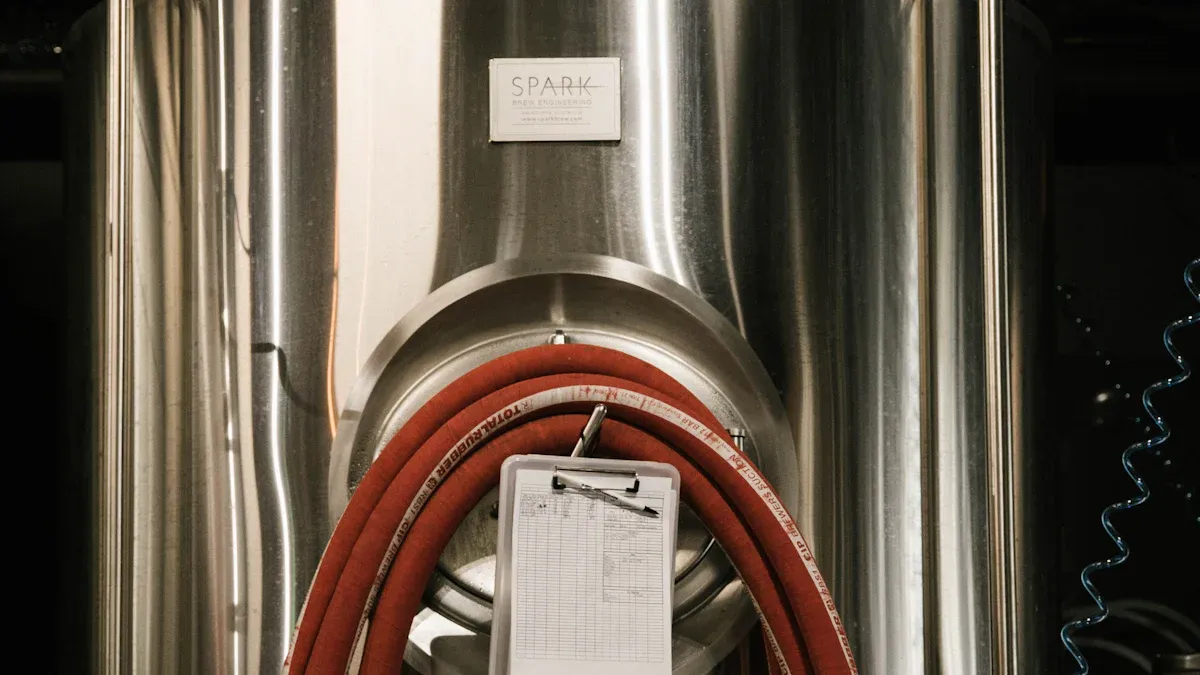
Fermenters and bright tanks are essential for turning wort into the delicious craft beer you love. These specialized vessels ensure your beer ferments, conditions, and clarifies properly, delivering consistent quality every time. Let’s break down their roles and why they’re so important in brewing.
Fermentation Tanks
Fermentation tanks are where the magic happens. Once the wort is transferred into these tanks, yeast gets to work converting sugars into alcohol and carbon dioxide. This process defines the beer’s flavor, aroma, and character. Modern fermenters, like those from COFF, are designed to optimize every step of this critical stage.
Here’s why fermenters are indispensable in brewing:
- Yeast produces alcohol and carbon dioxide, giving beer its signature traits.
- Unique flavors and aromas develop as yeast creates esters and phenols.
- Controlled environments maintain consistent temperature and pressure, ensuring reliable results.
- Conical designs separate sediment, leaving you with clearer beer.
Temperature control is key during fermentation. It keeps yeast healthy and prevents off-flavors. Different yeast strains thrive at specific temperatures, so having precise control helps you achieve the perfect flavor profile. COFF’s fermenters come equipped with advanced temperature regulation systems, making them a top choice for brewers.
Did You Know? Secondary fermentation can enhance flavor and clarity, giving your beer that extra edge.
Bright Beer Tanks
Once fermentation is complete, the beer moves to bright tanks for conditioning and carbonation. These tanks play a vital role in refining the beer’s quality and preparing it for packaging. COFF’s bright tanks are engineered to deliver exceptional results, ensuring your beer stands out.
Why are bright tanks so valuable in brewing?
- They maintain beer quality, consistency, and freshness.
- Proper conditioning and carbonation enhance the beer’s taste and mouthfeel.
- Oxygen exposure is minimized, preserving flavor and extending shelf life.
- Precise control over carbonation ensures a satisfying drinking experience.
Bright tanks also improve clarity by allowing any remaining particles to settle. This step ensures your beer looks as good as it tastes. With COFF’s bright tanks, you can count on high-quality results that keep your customers coming back for more.
Pro Tip: Investing in high-performance fermenters and bright tanks not only improves your brewing process but also boosts your brand’s reputation for quality.
Cooling and Temperature Control Systems in Brewhouse Equipment
Temperature control is one of the most critical aspects of brewing. It ensures your beer develops the right flavors and maintains consistency. Cooling systems in brewhouse equipment help you manage temperatures effectively during different stages of the brewing process. Let’s explore two essential tools: wort chillers and glycol cooling systems.
Wort Chillers
Wort chillers are indispensable in brewing. They rapidly cool the wort after boiling, bringing it to the ideal temperature for fermentation. This quick cooling process prevents contamination and helps preserve the beer’s flavor profile.
Modern wort chillers, like those offered by COFF, are designed for efficiency and reliability. They use advanced engineering to ensure rapid heat exchange. Here’s what makes them so effective:
- Efficient Cooling: Research shows that wort chillers can reduce temperatures from 70°C to fermentation-ready levels using water at just 15°C.
- Flow Rate Impact: Studies highlight that the wort’s final temperature depends more on the flow rate than the coolant’s temperature.
- Durable Design: High-quality materials ensure long-lasting performance, even with frequent use.
COFF’s wort chillers are built to handle the demands of both small-scale and commercial brewhouse operations. They’re a must-have for any brewer aiming for precision and quality.
Tip: Always clean your wort chiller thoroughly after each use. This keeps it running efficiently and prevents unwanted flavors in your beer.
Glycol Cooling Systems
Glycol cooling systems are another vital component of brewhouse equipment. These systems maintain precise temperature control during fermentation and storage. They’re especially useful for larger breweries or those brewing multiple batches simultaneously.
Here’s why glycol cooling systems are a game-changer:
- Consistent Temperature: They keep your fermenters and bright tanks at the perfect temperature, ensuring consistent results.
- Energy Efficiency: Advanced designs minimize energy consumption while delivering powerful cooling.
- Scalability: Whether you’re brewing small batches or running a large operation, glycol systems can adapt to your needs.
COFF’s glycol cooling systems combine cutting-edge technology with user-friendly features. They’re designed to integrate seamlessly into your brewhouse, making temperature management effortless.
Pro Tip: Pairing glycol systems with COFF’s fermenters and bright tanks ensures optimal performance and beer quality.
Cleaning and Sanitization Tools for Microbrewery Equipment
Keeping your brewing equipment clean is essential for producing high-quality beer. Contamination can ruin an entire batch, so having the right cleaning and sanitization tools is non-negotiable. Let’s explore two key solutions that make this process efficient and hassle-free.
CIP (Clean-In-Place) Systems
A clean-in-place system is a game-changer for breweries. It automates the cleaning process, saving you time and effort while ensuring thorough sanitation. With a CIP system, you can clean tanks, pipes, and other brewing equipment without disassembling them. This makes it a must-have for both small and large breweries.
Here’s why CIP systems are so effective:
- They reduce cleaning time by up to 30%, allowing you to brew more frequently.
- Operators can manage multiple cleaning cycles simultaneously, cutting labor costs.
- They prevent scale buildup and corrosion, extending the life of your equipment.
Monitoring variables like pH, temperature, and contact time ensures the cleaning process is successful. Many breweries also use ATP swab tests or microbial plating to confirm cleanliness. COFF’s CIP systems are designed with precision and efficiency in mind, helping you maintain a spotless brewing environment.
Pro Tip: Investing in a CIP system pays off quickly. Most breweries recoup their initial investment within a year thanks to lower labor and chemical costs.
Sanitization Tools
While cleaning removes dirt and residues, sanitization eliminates harmful microbes. This step is crucial for preventing contamination and ensuring your beer tastes consistent across batches. Sanitization tools like spray balls, steam wands, and chemical applicators make this process quick and effective.
Why are sanitization tools so important?
- They improve beer consistency, enhancing your brewery’s reputation.
- Automated tools reduce downtime, letting you focus on brewing.
- They minimize the risk of contamination, protecting your product and your brand.
COFF offers a range of sanitization tools tailored to your needs. Whether you’re a small craft brewer or running a commercial operation, their equipment ensures your brewing process stays clean and safe.
Did You Know? Many breweries perform a full CIP cycle after every batch, while others use partial rinse cycles between consecutive brews to save time.
Packaging Equipment for Craft Beer Brewing
Packaging is the final step in your brewing journey, where your craft beer gets ready to meet its fans. Whether you’re kegging for local bars or bottling and canning for retail shelves, having the right packaging equipment ensures your beer stays fresh and appealing. Let’s explore the essentials.
Kegging Systems
Kegging is a popular choice for breweries that supply beer to pubs, restaurants, or taprooms. It’s efficient, cost-effective, and keeps your beer tasting fresh. Modern kegging systems, like those from COFF, are designed to make this process seamless.
Here’s why kegging systems are a must-have:
- They allow you to package beer quickly, reducing downtime between batches.
- Advanced systems minimize oxygen exposure, preserving the beer’s flavor and quality.
- They’re easy to clean and maintain, ensuring consistent performance.
COFF’s kegging systems are built with precision and durability in mind. Whether you’re running a small craft brewery or a larger operation, these systems help you streamline your packaging process while maintaining the integrity of your beer.
Tip: Always sanitize your kegs thoroughly before filling them. This step prevents contamination and keeps your beer tasting its best.
Bottling and Canning Lines
If you’re looking to expand your reach, bottling and canning lines are essential. These systems let you package your beer for retail, making it accessible to a wider audience. COFF offers state-of-the-art bottling and canning lines that combine efficiency with reliability.
Why invest in bottling and canning lines?
- They enhance production efficiency, allowing you to meet growing demand.
- Automated systems reduce labor costs and improve consistency.
- Metrics like Overall Equipment Effectiveness (OEE) help you monitor performance and optimize operations.
Modern packaging lines also use advanced tools like discrete event simulation to boost efficiency. With COFF’s bottling and canning lines, you can package your beer with precision, ensuring it looks and tastes great on every shelf.
Did You Know? Bottling and canning lines not only improve operational efficiency but also help you maintain consistent quality across batches.
Packaging is more than just a final step—it’s a way to showcase your brewing expertise. With COFF’s high-quality equipment, you can ensure your beer reaches customers in perfect condition, every time.
Auxiliary Brewing Equipment for Microbreweries
When it comes to brewing, auxiliary equipment plays a crucial role in ensuring efficiency and quality. These tools might not be the stars of the show, but they’re the backbone of a smooth brewing process. Let’s explore three essential pieces of auxiliary brewing equipment.
Grain Mills
Grain mills are where your brewing journey begins. They crush malted grains into a coarse powder called grist, which is essential for extracting fermentable sugars during mashing. The quality of your crush directly impacts the efficiency of your 3-vessel brewhouse or even a 6-vessel brewhouse.
Why are grain mills so important?
- Consistency: A uniform crush ensures even extraction, leading to better flavor and higher efficiency.
- Adjustability: Modern mills let you adjust the crush size to suit different brewing styles.
- Durability: High-quality mills, like those from COFF, are built to last, even with frequent use.
Investing in a reliable grain mill saves time and improves the quality of your beer. It’s a small step that makes a big difference.
Pumps and Hoses
Pumps and hoses might not seem glamorous, but they’re essential for moving liquids efficiently during brewing. From transferring wort to circulating cleaning solutions, these tools keep your operation running smoothly.
Here’s what to look for:
- Flow Rate: Choose pumps that match your brewing scale to avoid bottlenecks.
- Material Quality: Food-grade hoses and stainless-steel pumps ensure safety and durability.
- Ease of Cleaning: Quick-disconnect fittings make cleaning a breeze, saving you time.
COFF offers pumps and hoses designed specifically for brewing, ensuring reliability and ease of use. They’re perfect for both small-scale and commercial brewers.
Control Panels
Control panels are the brains of your brewing operation. They let you monitor and manage every aspect of the process, from temperature to flow rates. Advanced control panels, like those from COFF, take the guesswork out of brewing.
Here’s a quick look at what makes modern control panels so effective:
| Feature | Description |
|---|---|
| Temperature Control | Ensures precise brewing temperatures for quality consistency. |
| Monitoring Capabilities | Continuous measurement of critical parameters like pH and dissolved oxygen for quality assurance. |
| Automation Enhancements | User-friendly interfaces that allow operators to manage processes efficiently, improving operational flow. |
| Condition Monitoring Sensors | Essential for maintaining equipment reliability and preventing costly downtimes. |
| Real-time Data Collection | Provides actionable insights to enhance productivity and sustainability in brewing operations. |
With COFF’s control panels, you can focus on crafting exceptional beer while the technology handles the details. They’re a must-have for any brewer aiming for precision and efficiency.
Pro Tip: Pairing COFF’s control panels with a 3-vessel brewhouse ensures seamless integration and optimal performance.
Factors to Consider When Choosing Microbrewery Equipment
Choosing the right microbrewery equipment can feel overwhelming, but focusing on a few key factors makes the process much easier. Let’s break it down step by step.
Production Capacity
Start by thinking about how much beer you want to produce. Are you brewing for a small local audience or planning to scale up for wider distribution? Your production goals will determine the size and type of equipment you need. For example, a 3-vessel brewhouse might be perfect for small batches, while a larger 6-vessel brewhouse suits higher volumes.
Here’s a quick checklist to guide you:
- Assess your desired production volume.
- Ensure the equipment can handle your brewing style and complexity.
- Look for flexibility and scalability to grow with your business.
COFF offers a range of brewing systems designed to meet various production needs. Whether you’re starting small or aiming big, their equipment ensures efficiency and quality at every stage.
Budget
Your budget plays a huge role in your decision. It’s not just about the upfront cost but also the long-term value. High-quality equipment might cost more initially, but it saves money over time by improving efficiency and reducing maintenance.
Here’s a snapshot of key metrics to consider:
| Metric | Description | Ideal Value |
|---|---|---|
| Brewhouse Efficiency | Assesses how effectively brewing equipment is utilized. | 90% or higher |
| Return On Investment (ROI) | Evaluates profitability of investments in equipment and marketing. | 20-30% |
| Operating Margin | Indicates profitability, calculated by operating income divided by revenue. | 15-20% |
COFF’s equipment is built to deliver excellent ROI and brewhouse efficiency, making it a smart investment for any brewer.
Space Availability
Space is another critical factor. Brewing equipment can take up a lot of room, so you’ll need to plan your layout carefully. Measure your available space and consider how the equipment will fit. Don’t forget to leave room for auxiliary tools like grain mills and pumps.
Compact systems, like COFF’s combination units, are perfect for smaller spaces. They combine multiple functions into one piece of equipment, saving you room without sacrificing performance. For larger breweries, COFF offers scalable solutions that maximize efficiency while optimizing your layout.
Tip: Always map out your brewhouse layout before purchasing equipment. This ensures a smooth workflow and prevents costly adjustments later.
Brand and Supplier Reputation (Highlight COFF)
When it comes to choosing microbrewery equipment, the supplier you pick can make or break your brewing success. A trusted supplier ensures you get high-quality tools, reliable support, and long-term value. That’s why COFF stands out as a top choice for brewers worldwide.
COFF has built a stellar reputation in the brewing industry. Their commitment to quality and innovation has earned them loyal customers across the globe. With over 80% of their clients coming from referrals, it’s clear that brewers trust COFF to deliver exceptional results. Their equipment isn’t just durable—it’s designed to make your brewing process smoother and more efficient.
Here’s a quick look at COFF’s performance metrics that highlight their excellence:
| KPI | Value |
|---|---|
| Sales Growth Rate | At least 10% per year |
| Customer Retention Rate | 60-70% |
| Brewhouse Efficiency | 90% efficiency |
| Return on Investment (ROI) | 15-20% |
| Operating Margin | 20-30% |
| Average Revenue Per User (ARPU) | $100-150 annually |
These numbers tell a story of consistent growth, satisfied customers, and efficient brewing solutions. COFF’s focus on customer satisfaction is unmatched. They offer tailored equipment to meet your specific needs, whether you’re running a small microbrewery or a large-scale operation.
What sets COFF apart is their dedication to innovation. They were the first to introduce oil-heated brewhouses, a game-changer in brewing technology. Their team of experienced engineers ensures every product meets the highest standards. Plus, COFF’s global reach means you can count on their support no matter where you’re located.
Pro Tip: Partnering with a reputable supplier like COFF not only boosts your brewing efficiency but also gives you peace of mind. You’ll know you’re working with a team that truly understands your craft.
Choosing the right supplier is about more than just equipment. It’s about building a partnership that helps your brewery thrive. With COFF, you’re not just buying tools—you’re investing in your brewing future.
Choosing the right microbrewery equipment is essential for crafting consistent, high-quality beer. Your brewing success depends on selecting tools that align with your production goals, budget, and available space. For example, advanced systems like automated CIP units and beer concentration equipment can significantly boost efficiency and quality. Lakefront Brewery’s upgrade to high-performance filling machines increased their production speed and reduced oxygen-related errors, proving the value of investing in reliable equipment.
Partnering with a trusted supplier like COFF ensures you get durable, high-performance brewing systems tailored to your needs. From yeast propagation systems to automation tools, COFF’s innovative solutions help you optimize every stage of brewing. With their expertise and commitment to quality, you can focus on what matters most—creating exceptional craft beer.
Pro Tip: Investing in COFF’s brewing equipment not only enhances your operations but also ensures your beer stands out in a competitive market.
FAQ
What size brewing system should I choose for my microbrewery?
Your brewing system size depends on your production goals. For small batches, a 3-vessel brewhouse works well. Larger operations may need a 6-vessel system. COFF offers scalable solutions to match your needs, ensuring efficiency and room for growth.
How do I maintain my brewing equipment?
Regular cleaning and sanitization are key. Use CIP systems for tanks and sanitize kegs before filling. COFF’s equipment is designed for easy maintenance, saving you time and effort while ensuring consistent quality.
Can I upgrade my existing brewing setup?
Yes, you can! Many brewers start small and expand as demand grows. COFF provides modular and customizable equipment, making upgrades seamless and cost-effective. Their team can guide you through the process.
What makes COFF equipment stand out?
COFF combines innovation, durability, and customer-focused design. Their oil-heated brewhouses and advanced control panels improve efficiency. Plus, their global reputation and excellent support make them a trusted choice for brewers worldwide.
How do I ensure consistent beer quality?
Consistency comes from precise temperature control, proper cleaning, and reliable equipment. COFF’s fermenters, bright tanks, and control panels help you maintain optimal conditions, ensuring every batch meets your standards.
Pro Tip: Partnering with COFF ensures you have the tools and support to craft exceptional beer every time. 🍺

